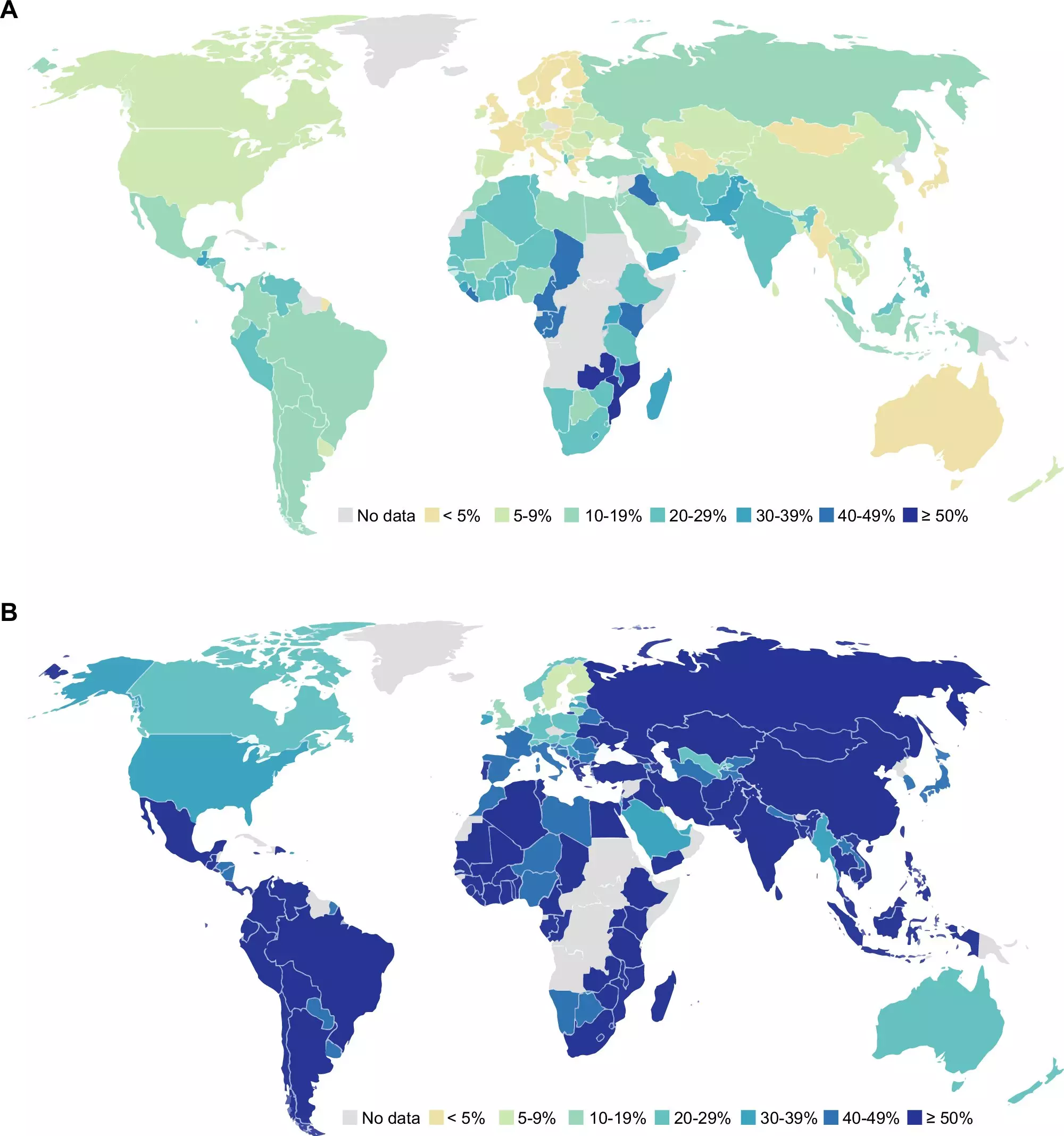A recent extensive study conducted by prominent health experts at Northwestern University and the University of North Carolina at Chapel Hill has raised alarming concerns about public perceptions of water safety. With more than half of adults surveyed across 141 countries expressing fears of possible harm from drinking water within the next two years, this research underscores a significant global issue regarding trust in water sources. Published in *Nature Communications*, the study titled “Self-reported anticipated harm from drinking water across 141 countries” reveals the disconcerting reality that perceptions surrounding water safety directly influence behaviors and health outcomes, regardless of whether water quality meets regulatory safety standards.
The gravity of this situation is highlighted by Sera Young, a senior author of the study and an esteemed professor specializing in anthropology and global health. Young notes, “If we think our water is unsafe, we will avoid using it.” This avoidance often leads individuals to seek alternative hydration sources, such as packaged water or sugar-sweetened beverages, which can have devastating effects on personal health and the environment. The rise in reliance on these options may contribute to long-term health issues such as obesity and dental problems, illustrating how a lack of trust in municipal water can ripple through various layers of society, impacting health, nutrition, and economic stability.
With data collected from 148,585 adults, the researchers identified striking patterns regarding who is most likely to perceive their drinking water as hazardous. Women, urban residents, and those facing economic hardship showed a higher tendency to anticipate harm from their water supply. Surprisingly, the study revealed that perceptions of governmental corruption emerged as a stronger indicator of expected harm than more tangible factors, such as infrastructure quality or economic indicators like Gross Domestic Product. This correlation suggests that overarching social and political climate factors can significantly sway individual perceptions about essential services like drinking water.
Furthermore, even in developed countries with consistent access to basic water services, distrust remains pervasive. For instance, almost 40% of surveyed individuals in the United States reported fearing serious repercussions from their drinking water. These findings highlight a clear disconnect between actual water safety and public perception, indicating a pressing need for transparency in water quality information and improvements in community trust.
As Joshua Miller, a doctoral student at UNC and the study’s first author, emphasizes, “It is imperative both to deliver safe drinking water and to make sure that people have confidence in their water source.” The concept of trust emerges as a critical element in addressing water insecurity. Many contaminants present in water supplies remain undetectable without thorough testing, making it inherently difficult for the average consumer to assess the safety of their drinking water accurately. Instead, individuals often rely on personal experiences, anecdotal evidence, and media framing to form their opinions.
This reality is starkly exemplified by the fallout from crises like the Flint water scandal in the United States, which eroded public trust and had lasting repercussions on community health and well-being. Young reflects on this situation, stating, “The good people of Flint didn’t trust their water and they were spot on.” Such instances shed light on the crucial need for improved communication strategies regarding water safety, ensuring that consumers are informed and empowered.
In addressing the challenges associated with public mistrust, the authors of the study propose several actionable strategies aimed at enhancing confidence in drinking water systems. These include making water testing more accessible to the general public, providing clear translations of test results, incentivizing the replacement of outdated infrastructure such as lead pipes, and offering at-home filtration solutions when contaminants are detected. Improving overall access to safe drinking water is fundamental for fostering trust within communities.
Aaron Salzberg, Director of the Water Institute at the UNC Gillings School of Global Public Health, articulates the broader implications of these initiatives. He asserts that strategic enhancements in water services could stimulate significant public and political attention, ultimately pushing for reforms that lead to universal access to safe drinking water.
The disconnect between actual water safety and public perception poses a formidable challenge to global health and community well-being. By prioritizing clear communication, community engagement, and systematic improvements, we can work towards rebuilding the trust that is vital for securing a healthier future for all. The ongoing discourse surrounding water safety underlines the necessity for ongoing attention and dedication to revamping how we think about and manage one of our most precious resources—water.

